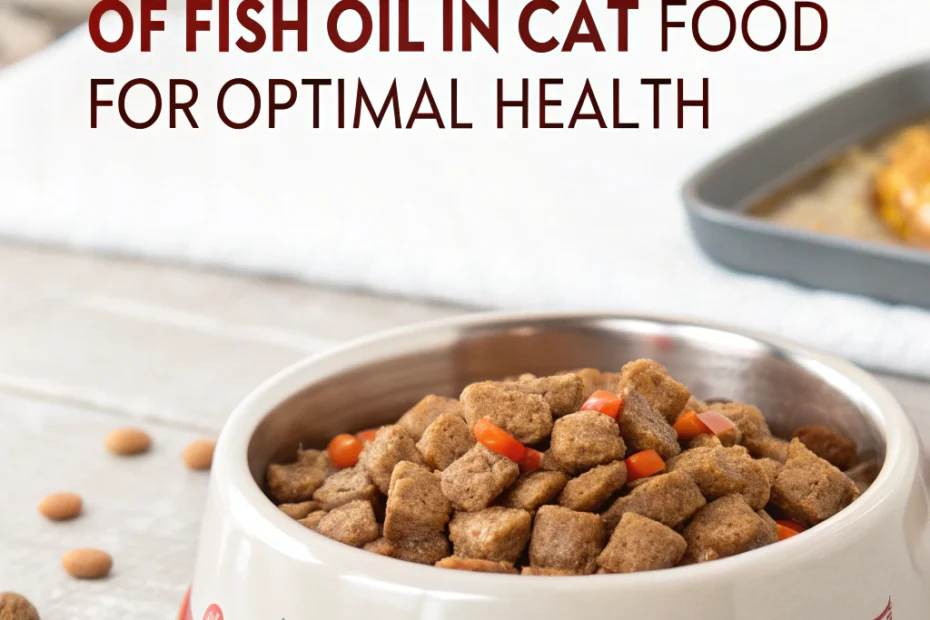At-a-Glance
Fish oil cat food is becoming increasingly popular due to its potential health benefits for your feline friend. Rich in omega-3 fatty acids, it may support your cat’s coat health, joint mobility, and overall wellness. This article helps you understand how fish oil can be a beneficial addition to your cat’s diet, along with tips on choosing the right product and ensuring its safe use.
How to Choose
Selecting the right fish oil cat food involves considering several factors:
- Quality of Ingredients: Look for high-quality fish oil sources like salmon, sardines, or mackerel.
- Omega-3 Content: Ensure the product contains adequate levels of DHA and EPA, the most beneficial omega-3 fatty acids.
- Certifications: Check for certifications from organizations like the Global Organization for EPA and DHA Omega-3s (GOED) to ensure purity and safety.
- Brand Reputation: Opt for reputable brands known for their quality and transparency.
Safety & Setup
Incorporating fish oil into your cat’s diet can be safe when done properly. Begin with smaller doses and gradually increase to the recommended amount to allow your cat to adjust. Always observe for any adverse reactions such as gastrointestinal upset or behavioral changes.
Core Pillars
Understanding the core benefits of fish oil can help you appreciate its role in cat nutrition:
- Skin and Coat Health: Omega-3s support healthy skin and a glossy coat.
- Joint Support: May reduce inflammation and improve mobility in older cats.
- Cognitive Function: DHA supports brain health, particularly in kittens.
- Heart Health: Can contribute to a healthy cardiovascular system.
Placement & Environment Tips
Ensure your cat’s dining area is clean and free from distractions. Consistent feeding times can help your cat build a healthy eating routine. Keep the fish oil cat food stored in a cool, dry place to maintain its freshness and potency.
Comparison with Alternatives
While fish oil supplements are available, incorporating fish oil directly into cat food can be more convenient and palatable for your cat. Compared to plant-based omega-3 sources like flaxseed, fish oil provides the more readily absorbed forms of omega-3s, DHA and EPA.
FAQs
Q: Can all cats benefit from fish oil?
A: While most cats can benefit, consult with your veterinarian, especially if your cat has specific health issues or is on medication.
Q: How often should I feed fish oil cat food?
A: Follow the product’s feeding guidelines and adjust based on your cat’s needs and your vet’s recommendations.
What to Do Next
If you’re considering adding fish oil cat food to your feline’s diet, start by discussing it with your veterinarian. They can provide personalized guidance based on your cat’s health status. Monitor your cat’s response to the new diet and make adjustments as necessary.
Disclaimer: Always consult your veterinarian for personalized advice regarding your cat’s health.
